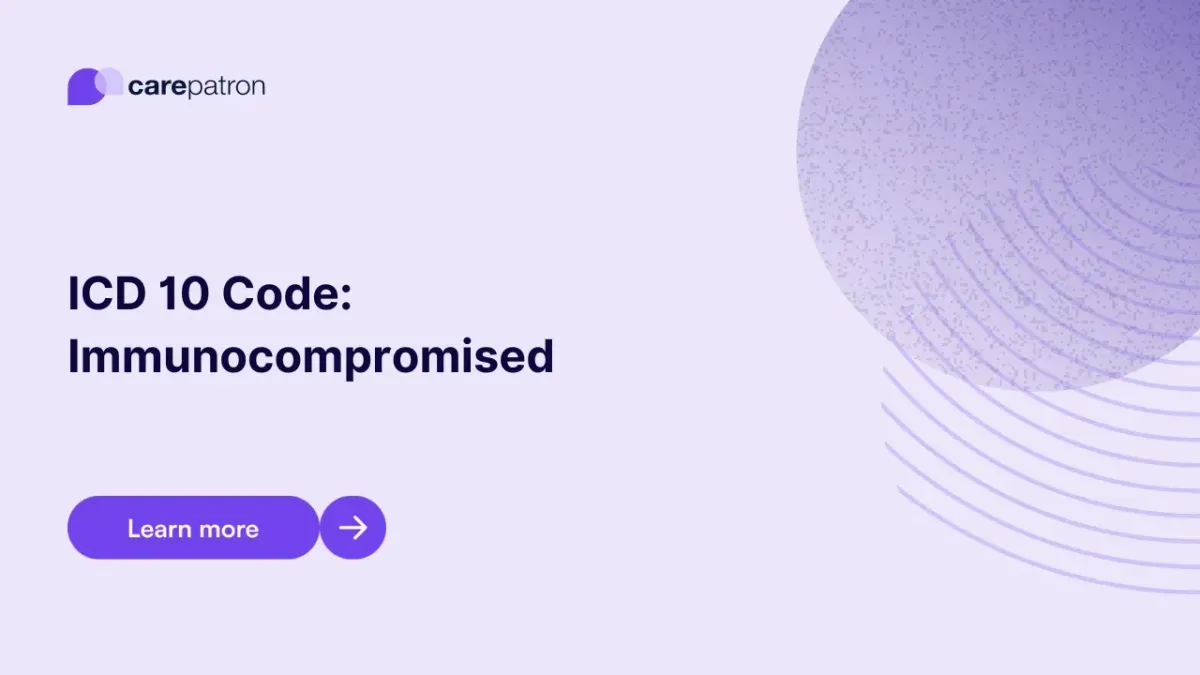
Immunocompromised ICD-10-CM Codes
Learn about the commonly used ICD-10 codes for immunocompromised individuals through this guide.
Use Code
Commonly asked questions
Use an immunocompromised ICD code when documenting a patient's medical condition involving a weakened or compromised immune system due to various factors.
Yes. All the aforementioned ones are valid and billable.
Treatments for immunocompromised individuals vary but may include immunoglobulin therapy, antiviral medications, antibiotics, antifungals, and immunosuppressive drugs, depending on the underlying condition.
EHR and practice management software
Get started for free
*No credit card required
Free
$0/usd
Unlimited clients
Telehealth
1GB of storage
Client portal text
Automated billing and online payments
